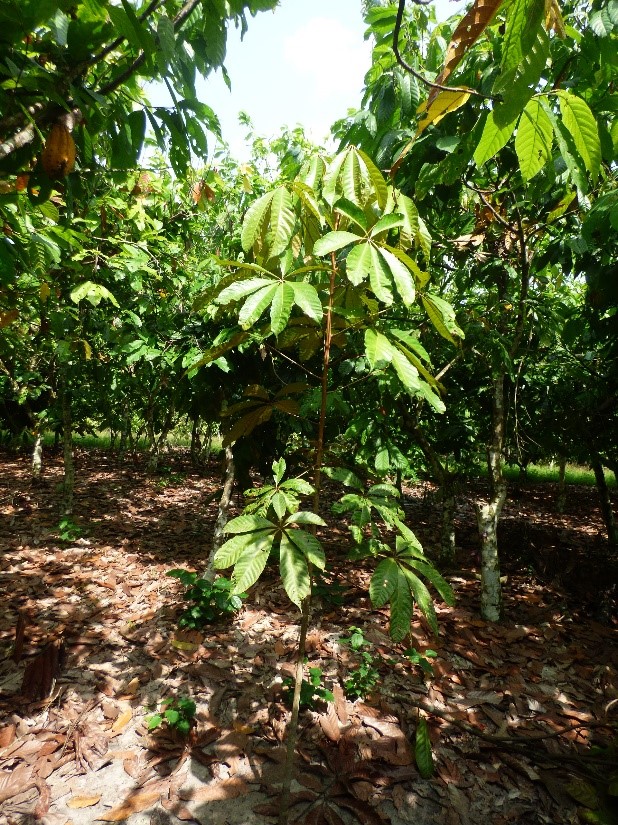

29.04.2020

Within the framework of the realization of its projects, ATIBT and its partners present you a directory guide to accompany forestry companies in the setting up of agroforestry projects based on cocoa.
Since 2013, ATIBT has been awarded a project financed by the Fonds Français pour l’Environnement Mondial (FFEM) entitled « Integration of the tropical timber sector in Central and West Africa into the FLEGT and REDD+ mechanisms ». This project aims to make the private forest sector actively contribute to the sustainable management of tropical forests and to the socio-economic development of wood-producing countries. The target countries of the project are (in alphabetical order) Cameroon, Congo, Côte d’Ivoire, Gabon and the Democratic Republic of Congo (DRC).
The first of the six components of this project concerns the participation of the forest private sector in the REDD+ mechanism, and aims to integrate private sector project opportunities into this mechanism through studies and pilot projects. The initial activities of this component were oriented towards raising awareness and setting up carbon certification projects: an opportunity study of the REDD+ mechanism for the private forest sector was conducted by ONFi in January 2017. Following the negative results of this study, it was decided to open the component to other themes, in particular the fight against deforestation and reforestation or reforestation.
Within this framework, three studies were implemented in 2018 to support the development of pilot project concepts for innovative plantations for timber, fuelwood and agricultural product needs:
In the continuity of the activities of this component, at the beginning of 2020 the consortium Eticwood/Gembloux/Pallisco won the call for tender « Feasibility study and elaboration of two agroforestry project proposals ».
Eticwood SL is a consultancy firm specialized in the field of sustainability in tropical forestry. It benefits from a very good knowledge of the forest environment in Central and West Africa. Since 2019, Eticwood has been associated with Durwood in the framework of a logistics platform dedicated to the import of FSC tropical wood for the public sector.
Gembloux Agro-Bio Tech is an internationally recognized faculty of the University of Liège. This faculty is driven by the permanent need to open up to a world undergoing rapid and profound change: strong presence in the countries of the South, contributions to the fight against global crises and sharing of experiences with non-academic actors. Its new TERRA research centre draws on the results of decades of research in the agronomic, forestry and environmental fields.
Pallisco, is a forestry company created in Cameroon in 1972 in order to meet the supply needs of quality logs and sawn timber for the manufacture of Pasquet joineries in France. The FSC-certified Pallisco company has been implementing an intensive programme of planting commercial species since 2010. It reforests annually between 10 and 15 ha of degraded forests and several hundred felling holes.
The general objective of the study is to contribute to the evolution of the forest concession model with a view to making the rainforest a sustainable lever for the development of populations and territories. The aim is thus to ensure the diversification of activities in order to secure wood resources, restore degraded forests and protect permanent domain forests.
As part of phase 1 of this study, a guide for forestry companies to assist them in setting up cocoa-based agroforestry projects has just been finalised. It (i) illustrates the different interests for a forestry company to integrate cocoa farming into the scope of its activities, (ii) describes different possible models of partnerships between the cocoa and forestry sectors. Feedback from several projects makes it possible to analyse their success factors and limitations, (iii) provides a directory of financial and technical partners that can be approached, and (iv) proposes a reflection on the avenues for agroforestry certification.
Download the guide (french)